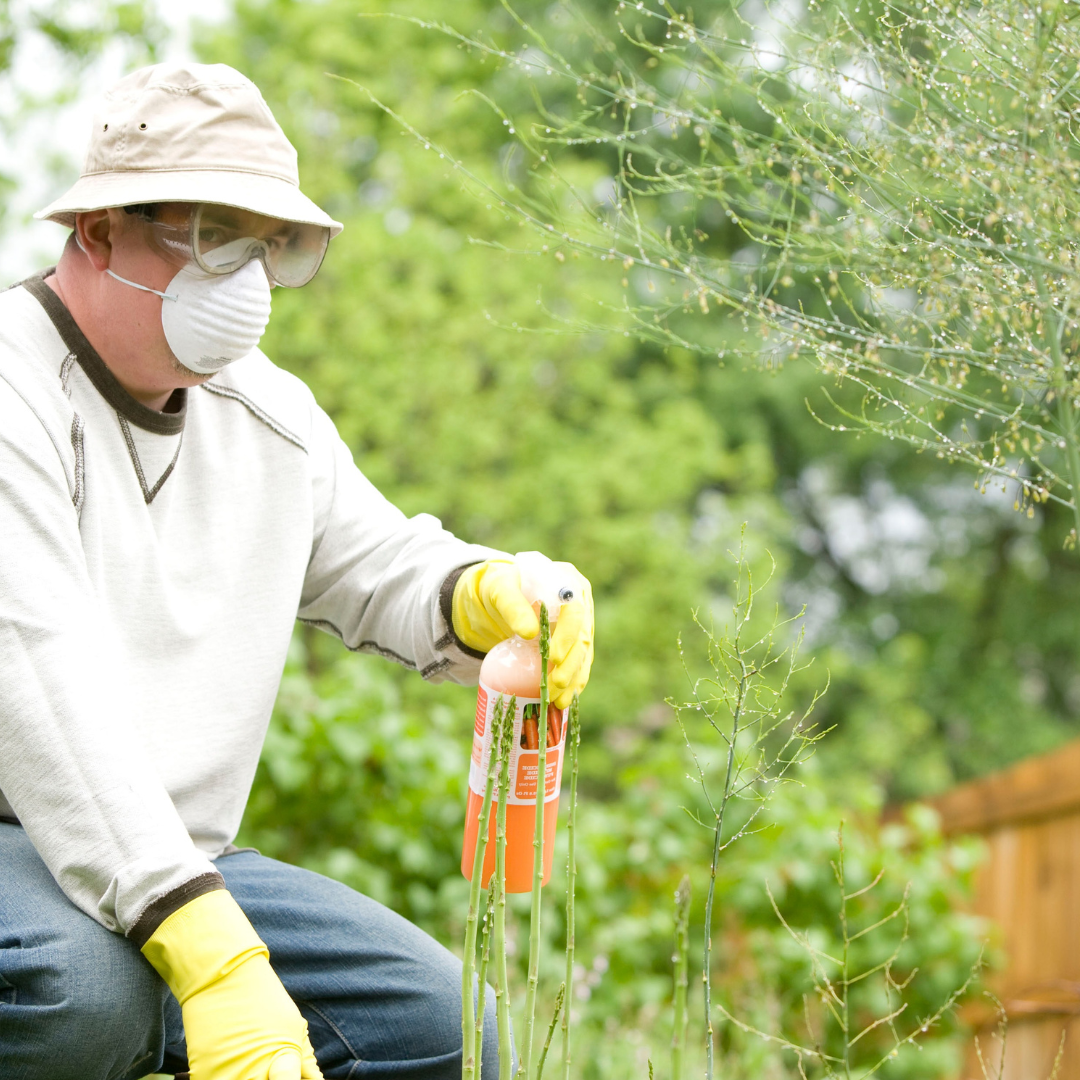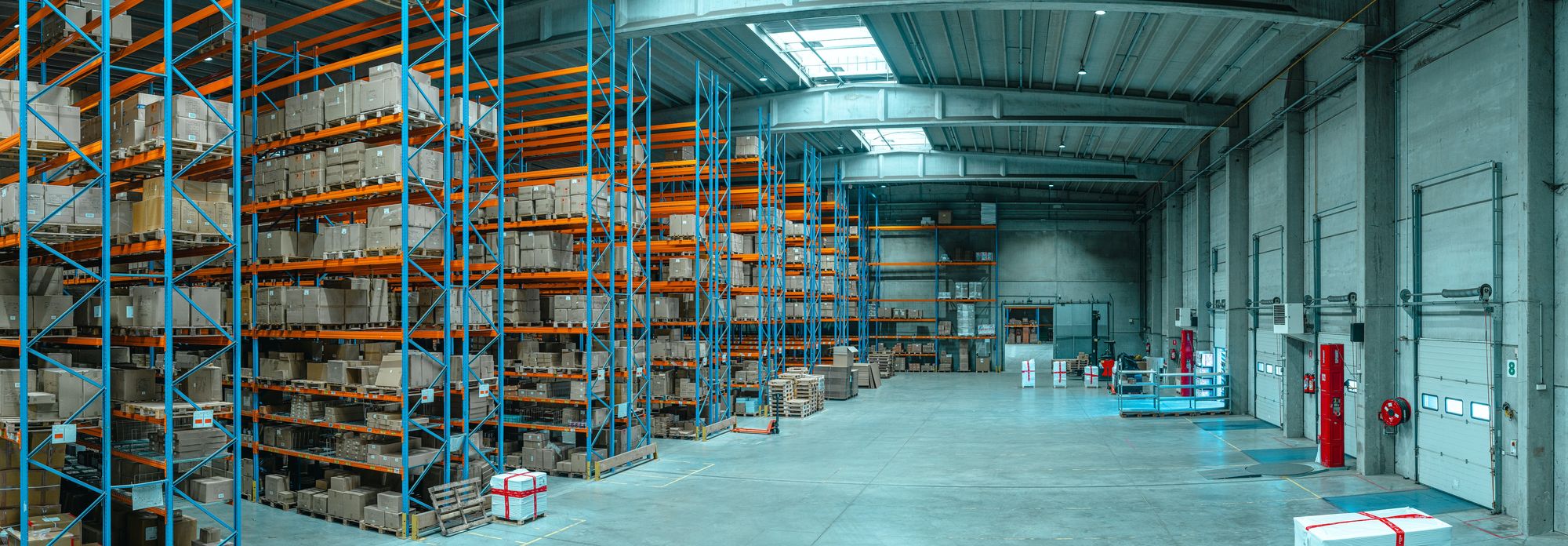In a survey of pest management professionals, 40% reported that they outsource some or all of their pest control services. (Source: Pest Control Technology) In fact, the pest control industry is experiencing a shortage of qualified pest control technicians, leading some companies to outsource their services to meet demand. (Source: Pest Management Professional)
Thus, if you are a manufacturer of pest control and you are looking to maximize your net revenue, reduce the pressure on your working capital, and increase your returns on investment while keeping your customers satisfied and avoiding additional business expenses in the form of penalties, then outsourcing your pest control manufacturing is an option that you should consider.

Outsourcing pest control manufacturing is the practice of contracting with a third-party company to produce pest control products. This allows businesses to reduce their overhead costs, such as labor, materials, and production costs, while also gaining access to a larger range of products and services.
The third-party company is responsible for researching effective and safe pest control products, developing production plans, and manufacturing the products for the contracted businesses.
However, to assess whether outsourcing pest control manufacturing is the right choice for your business, then you must have a complete understanding of it.
This article will help you by covering the following topics:
- What is Pest Control Manufacturing?
- What is Outsource Manufacturing?
- What is Outsourcing in Pest Control Manufacturing?
- What are the Benefits of Outsourcing Your Pest Control Manufacturing?
- What are the Challenges Associated with Outsourcing Your Pest Control Manufacturing?
- How to Assess if Outsourcing Your Pest Control Manufacturing is the Right Choice for You?
- FAQs related to Outsourcing Pest Control Manufacturing
- How can Deskera Help You in Outsourcing Pest Control Manufacturing?
- Key Takeaways
- Related Articles
What is Pest Control Manufacturing?
Pest control manufacturing refers to the process of creating and producing products used to control and manage pests. These products can include insecticides, rodenticides, traps, baits, and other solutions designed to eliminate or prevent infestations of pests in homes, businesses, and agricultural settings.
The manufacturing process typically involves creating a formulation or mixture of active ingredients and other additives that are effective against the target pests. This can include chemical compounds, biological agents, or natural substances that repel or kill pests.
Once the formulation is created, it is packaged into various forms, such as sprays, granules, powders, or gels. The packaging may also include instructions for use, safety warnings, and other labeling information required by regulatory agencies.
Pest control manufacturing is an important industry, as pests can cause significant damage to structures, crops, and human health. Effective pest control products can help prevent and manage infestations, leading to a healthier and safer environment.
What is Outsource Manufacturing?
Outsourcing manufacturing refers to the practice of hiring an external company to produce goods or components that are traditionally produced in-house. This is often done to reduce costs, improve efficiency, and focus on core competencies.
Outsourcing manufacturing can involve a wide range of products, from electronic components and clothing to furniture and automotive parts. The process typically involves identifying a suitable supplier, negotiating a contract, and establishing quality control measures to ensure the products meet the required standards.
One of the primary benefits of outsourcing manufacturing is cost savings. By hiring an external company, businesses can avoid the expenses associated with building and maintaining their own manufacturing facilities, as well as the costs of hiring and training workers.
Outsourcing manufacturing can also improve efficiency by leveraging the expertise and economies of scale of the external supplier. This can result in faster production times, improved quality control, and lower costs for the business.
However, outsourcing manufacturing can also have drawbacks. It can lead to a loss of control over the production process, as well as intellectual property and trade secrets. It can also result in quality control issues and supply chain disruptions if the external supplier is not reliable or experiences problems.
What is Outsourcing in Pest Control Manufacturing?
Outsourcing in pest control manufacturing refers to the practice of a pest control company hiring an external manufacturer to produce its products instead of producing them in-house. This is often done to reduce costs, increase efficiency, and improve product quality.
By outsourcing pest control manufacturing, a company can focus on its core competencies, such as sales and marketing, while leaving the manufacturing process to an expert third party. This can lead to cost savings as the company does not have to invest in manufacturing equipment, facilities, and labor.
Outsourcing can also improve efficiency by allowing the manufacturer to leverage its expertise and economies of scale. This can lead to faster production times, improved quality control, and lower costs for the pest control company.
Overall, outsourcing in pest control manufacturing can be a beneficial strategy for companies looking to reduce costs and improve efficiency while maintaining high-quality products.
What are the Benefits of Outsourcing Your Pest Control Manufacturing?
Outsourcing your pest control manufacturing can help you to improve efficiency, reduce costs, and access specialized expertise, allowing you to focus on growing your business. However, it is important to carefully evaluate potential outsourcing partners and ensure that they can meet your quality and production requirements.
Thus, outsourcing your pest control manufacturing can offer several benefits, including:
Cost Savings
Outsourcing can help to lower manufacturing costs, as the outsourcing company can take advantage of economies of scale and may have lower labor costs. Outsourcing pest control manufacturing can help save costs in several ways:
- Economies of scale: A specialized pest control manufacturer may be able to produce larger quantities of products at a lower cost per unit due to economies of scale. They may also have access to bulk discounts on raw materials and packaging. This will help in reducing operating costs.
- Lower labor costs: Outsourcing to countries with lower labor costs can significantly reduce production costs. For example, many companies outsource to countries like China or India, where labor costs are generally lower. In turn, this will lead to higher gross profit margins.
- Lower overhead costs: Outsourcing can help to reduce overhead costs, such as rent, utilities, and equipment maintenance. The outsourcing company is responsible for these costs, which can be significant for manufacturers.
- No need for capital investments: Outsourcing eliminates the need for expensive capital investments in manufacturing equipment and facilities. This can be especially beneficial for small or medium-sized businesses that may not have the resources to invest in these areas.
- Reduced inventory costs: Outsourcing can help reduce inventory costs as the outsourced manufacturer may have better inventory management practices and lower carrying costs due to their ability to produce products quickly and efficiently. In fact, the need to have safety stock will be eliminated or at least reduced.
Overall, outsourcing pest control manufacturing can help to reduce costs, improve efficiency, and increase profitability.
Increased Efficiency
A specialized pest control manufacturer can offer greater efficiency in production, leading to faster turnaround times and reduced manufacturing lead times. Outsourcing pest control manufacturing can increase efficiency in several ways:
- Specialized expertise: A specialized pest control manufacturer has the necessary expertise and equipment to produce high-quality products efficiently. They have experience in producing pest control products and may have optimized production processes, leading to faster turnaround times and reduced lead times. This will also ensure that they are adhering to production planning and scheduling.
- Improved production capacity: An outsourced pest control manufacturer may have larger production facilities and greater capacity, allowing them to produce larger quantities of products quickly and efficiently. This will make sure that your customers are satisfied, leading to improved customer retention.
- Improved inventory management: An outsourced manufacturer can have better inventory management practices, allowing for faster turnaround times and reduced lead times. This can help to ensure that products are available when needed, reducing the risk of stockouts or delays.
- Access to new technologies: An outsourced manufacturer may have access to the latest technologies and equipment, allowing them to produce products more efficiently and with higher quality standards. This will improve your business metrics as well as operational metrics.
- Reduced downtime: An outsourced pest control manufacturer may have backup systems and procedures in place to ensure that production is not interrupted in the event of equipment failures or other issues. This can help to reduce downtime and keep production running smoothly. This will also lead to strong customer loyalty and higher sales referrals.
Overall, outsourcing pest control manufacturing can help increase efficiency, reduce lead times, and improve production capacity.
Quality Control
An experienced pest control manufacturer can have strict quality control measures in place, ensuring that products meet high standards. Outsourcing pest control manufacturing can help ensure high-quality products through several quality control measures:
- Specialized expertise: A specialized pest control manufacturer has the necessary expertise to produce high-quality products efficiently. They have experience in producing pest control products and may have optimized production processes that meet regulatory standards.
- Compliance with regulations: An outsourced pest control manufacturer can ensure that products meet regulatory standards and comply with local and international regulations. They have experience with regulatory requirements and can provide documentation and testing to demonstrate compliance.
- Quality assurance processes: An outsourced pest control manufacturer may have quality assurance processes in place to ensure that products meet high-quality standards. This can include product testing and quality control measures during production.
- Track record: An outsourced pest control manufacturer can provide references and demonstrate their track record of producing high-quality products. This can help ensure that the quality of the products is consistent and meets regulatory requirements.
- Documentation: An outsourced pest control manufacturer can provide documentation and testing data to demonstrate that products meet quality standards. This can include certificates of analysis, product testing reports, and other documentation.
Access to Expertise
Outsourcing to a pest control manufacturer can give you access to specialized expertise, such as regulatory compliance, formulations, and packaging. Outsourcing pest control manufacturing can provide access to expertise in several ways:
- Formulation expertise: An outsourced pest control manufacturer can provide expertise in the formulation of pest control products. This can include knowledge of active ingredients, formulations, and manufacturing processes to create effective pest control products.
- Regulatory expertise: An outsourced pest control manufacturer can provide regulatory expertise and guidance on compliance with local and international regulations for pest control products. They can also assist in obtaining necessary approvals and permits for product distribution.
- Packaging expertise: An outsourced pest control manufacturer can provide expertise in packaging design and materials selection. This can ensure that products are packaged appropriately for their intended use and meet regulatory requirements.
- Marketing and sales expertise: An outsourced pest control manufacturer may have expertise in marketing and sales, including knowledge of market trends, customer preferences, and distribution channels. They can provide guidance on product positioning and help to develop marketing strategies, such that your brand positioning statement is maintained and your marketing objectives are met. They will also help you in reaching all your buyer personas better.
- Technical support: An outsourced pest control manufacturer can provide technical support for product development and testing. This can include assistance with product optimization, troubleshooting, and product performance testing.
Overall, outsourcing pest control manufacturing can provide access to specialized expertise in formulation, regulatory compliance, packaging, marketing and sales, and technical support. This can help to ensure that products are developed and manufactured to meet high-quality standards and are competitive in the marketplace.
Scalability
Outsourcing can allow you to scale your production up or down based on demand without the need for significant investment in additional equipment and personnel. Outsourcing pest control manufacturing can help to make scalability possible in several ways:
- Increased production capacity: An outsourced pest control manufacturer may have larger production facilities and greater capacity, allowing them to produce larger quantities of products quickly and efficiently. This can help to scale production up or down depending on demand. Thus, your demand planning will be matched, and so will be your master production schedules.
- Flexibility: An outsourced pest control manufacturer can be more flexible in terms of production capacity, allowing for adjustments to be made more easily to meet changing demands.
- Reduced capital investment: By outsourcing pest control manufacturing, businesses can avoid the significant capital investment required to build and operate their own production facilities. This can free up capital for other areas of the business and reduce financial risk.
- Reduced lead times: An outsourced pest control manufacturer can have better inventory management practices, allowing for faster turnaround times and reduced lead times. This can help to ensure that products are available when needed, reducing the risk of stockouts or delays.
- Scalability of expertise: An outsourced pest control manufacturer can provide access to specialized expertise and resources that can help to support scalability. This can include formulation expertise, regulatory compliance knowledge, and technical support.
Overall, outsourcing pest control manufacturing can provide scalability benefits through increased production capacity, flexibility, reduced capital investment, reduced lead times, and scalability of expertise.
However, it is important to carefully evaluate potential outsourcing partners to ensure that they can meet quality and production requirements and to have strong communication and collaboration to ensure that the outsourcing relationship supports business objectives.
Focus on Core Competencies
Outsourcing can free up resources and allow your company to focus on core competencies, such as marketing and sales. Outsourcing pest control manufacturing can help businesses to focus on their core competencies in several ways:
- Streamlined operations: By outsourcing pest control manufacturing, businesses can streamline their operations and reduce the need to manage complex manufacturing processes. This can allow them to focus on their core competencies, such as research and development, marketing, and sales. This will help you in maximizing your net profit ratio.
- Increased efficiency: By outsourcing pest control manufacturing, businesses can benefit from the increased efficiency of a specialized manufacturing partner. This can help to reduce the time and resources required to produce high-quality products, allowing businesses to focus on other areas of the business.
- Reduced costs: By outsourcing pest control manufacturing, businesses can reduce costs associated with operating their own manufacturing facilities, including capital expenditures, labor costs, and maintenance costs. This can free up resources to invest in other areas of the business, such as research and development or marketing.
- Access to expertise: By outsourcing pest control manufacturing, businesses can gain access to specialized expertise in areas such as formulation, regulatory compliance, and technical support. This can help to support the business's core competencies by providing valuable resources and support.
- Strategic partnerships: Outsourcing pest control manufacturing can also allow businesses to form strategic partnerships with manufacturing partners, allowing them to work together to develop new products, improve existing products, and explore new market opportunities.
Risk Management
By outsourcing, you can transfer some of the risks associated with manufacturing, such as production delays or quality issues, to the outsourcing company. Outsourcing pest control manufacturing can help businesses to manage risks in several ways:
- Quality control: By outsourcing pest control manufacturing, businesses can rely on their manufacturing partners to ensure that products are produced to high-quality standards. This can help to reduce the risk of product recalls or customer complaints due to product defects.
- Regulatory compliance: Outsourcing pest control manufacturing can also help businesses to manage regulatory risks by relying on their manufacturing partners' expertise in regulatory compliance. This can include obtaining necessary permits and approvals and ensuring that products meet all relevant regulations and standards.
- Reduced financial risk: Outsourcing pest control manufacturing can also help businesses to manage financial risks by avoiding the significant capital investment required to build and operate their own manufacturing facilities. This can reduce financial risk and free up capital for other areas of the business.
- Improved supply chain management: By outsourcing pest control manufacturing, businesses can benefit from the expertise of their manufacturing partners in supply chain management. This can help to ensure that raw materials and finished products are sourced and distributed efficiently and effectively, which will help in reducing additional expenses and improve your cash flow as well as financial KPIs.
- Disaster recovery: Outsourcing pest control manufacturing can also help businesses to manage risks associated with disasters or disruptions to operations. By relying on manufacturing partners with geographically diverse facilities, businesses can reduce the risk of disruptions due to natural disasters, political instability, or other unforeseen events.
Innovation
Outsourcing pest control manufacturing can help businesses to foster innovation in several ways:
- Access to specialized expertise: By outsourcing pest control manufacturing, businesses can gain access to specialized expertise in areas such as formulation, product development, and regulatory compliance. This can help businesses to develop new products and improve existing ones, leading to innovation.
- Collaborative partnerships: Outsourcing pest control manufacturing can also help businesses to form collaborative partnerships with their manufacturing partners. This can include joint research and development initiatives, which can lead to the development of new products and technologies.
- Focus on core competencies: By outsourcing pest control manufacturing, businesses can focus on their core competencies, such as research and development, marketing, and sales. This can allow them to devote more resources and attention to innovation in these areas, leading to new and innovative products and solutions.
- Increased flexibility: Outsourcing pest control manufacturing can also provide businesses with increased flexibility to respond to changing market conditions and customer demands. This can allow them to be more responsive to emerging trends and technologies, leading to continuous innovation.
- Reduced costs: By outsourcing pest control manufacturing, businesses can reduce costs associated with operating their own manufacturing facilities. This can free up resources to invest in innovation initiatives, such as research and development, and can provide the financial flexibility to take risks and pursue new opportunities.
What are the Challenges Associated with Outsourcing Your Pest Control Manufacturing?
Outsourcing pest control manufacturing can bring several benefits to a company, but it also comes with a range of challenges that need to be carefully considered before making a decision. Here are some of the challenges associated with outsourcing pest control manufacturing:
Quality Control
Quality control is a critical issue when it comes to pest control manufacturing. Outsourcing can make it difficult to ensure that the products being produced meet the necessary quality standards, as you are not directly overseeing the production process.
Communication
Effective communication is essential to ensure that your outsourcing partner understands your requirements and produces the products you need. This can be challenging when working with a partner located in a different time zone or with a different language.
Intellectual Property Protection
When outsourcing pest control manufacturing, it's important to protect your intellectual property, including formulations, designs, and manufacturing processes. This can be challenging when working with a third-party manufacturer who may have access to your proprietary information.
Supply Chain Disruption
Outsourcing can introduce new risks to your supply chain, such as delays in production, transportation, or customs clearance. This can cause significant disruptions to your business and affect your ability to meet customer demand.
Cultural Differences
Working with outsourcing partners from different cultures can be challenging, as it requires a good understanding of their customs, business practices, and communication styles.
Cost Management
Outsourcing pest control manufacturing can be cost-effective, but it requires careful management of costs to ensure that you are getting the best value for your investment. This includes factors such as negotiating favorable pricing, managing shipping and handling fees and addressing unexpected costs.
Vendor Selection
Finding the right outsourcing partner requires careful research and evaluation to ensure that they are reliable, have the necessary expertise and capacity, and are a good fit for your business.
How to Assess if Outsourcing Your Pest Control Manufacturing is the Right Choice for You?
There are several factors to consider when assessing whether outsourcing your pest control manufacturing is the right choice for you. Here are some steps you can take:
Evaluate Your Current Manufacturing Process
Start by assessing your current pest control manufacturing process. Look at factors such as production capacity, equipment requirements, labor costs, quality control, and lead times. This will help you identify the areas where outsourcing could potentially benefit your business.
Research Potential Outsourcing Partners
Once you have identified the areas where outsourcing could help your business, start researching potential outsourcing partners. Look for companies with a proven track record in pest control manufacturing, strong quality control processes, and the capacity to meet your production needs.
Compare Costs
Compare the costs of in-house manufacturing versus outsourcing. Take into account factors such as labor costs, equipment costs, raw material costs, and overhead expenses. Be sure to also consider any hidden costs, such as shipping and handling fees, import/export taxes, and customs duties.
Evaluate Quality Control Measures
Quality control is critical in pest control manufacturing. Be sure to evaluate the quality control measures of potential outsourcing partners to ensure that they meet your standards for product quality and consistency.
Consider Scalability
Consider the scalability of your business and whether outsourcing will allow you to scale your operations more easily. Will your outsourcing partner be able to accommodate increased production demands as your business grows?
Consider Intellectual Property
If you have developed proprietary pest control formulations, be sure to consider the potential risks and benefits of sharing this intellectual property with an outsourcing partner.
Evaluate Potential Risks
Finally, evaluate the potential risks associated with outsourcing, such as supply chain disruptions, communication breakdowns, and quality control issues. Be sure to have contingency plans in place to mitigate these risks.
FAQs related to Outsourcing Pest Control Manufacturing
- What is outsourcing pest control manufacturing?
Outsourcing pest control manufacturing refers to the practice of hiring an external manufacturer to produce pest control products, such as insecticides, rodenticides, and traps, instead of producing them in-house.
- Why do companies outsource pest control manufacturing?
Companies may outsource pest control manufacturing to reduce costs, improve efficiency, and focus on core competencies, such as sales and marketing.
- What are some benefits of outsourcing pest control manufacturing?
Benefits of outsourcing pest control manufacturing can include cost savings, improved efficiency, and access to specialized expertise and resources.
- What are some challenges associated with outsourcing pest control manufacturing?
Challenges can include quality control issues, intellectual property concerns, and supply chain disruptions if the external supplier experiences problems.
- How do companies select an outsourcing partner for pest control manufacturing?
Companies can select an outsourcing partner based on factors such as the supplier's reputation, production capabilities, quality control processes, and pricing.
- What types of pest control products can be outsourced?
Products that can be outsourced include insecticides, rodenticides, traps, baits, and other solutions designed to eliminate or prevent infestations of pests in homes, businesses, and agricultural settings.
- How can software tools like Deskera help with outsourcing pest control manufacturing?
Software tools like Deskera can help businesses manage supplier relationships, inventory, production planning, and quality control in outsourcing pest control manufacturing.
- What are some best practices for outsourcing pest control manufacturing?
Best practices include selecting a reliable supplier, establishing clear communication and quality control processes, and monitoring production activities.
- How can companies ensure the quality of outsourced pest control products?
Companies can ensure the quality of outsourced pest control products by setting quality control standards, conducting inspections, and working with reliable suppliers.
- What are some potential risks of outsourcing pest control manufacturing?
Risks can include supply chain disruptions, quality control issues, and potential damage to the company's reputation if products are found to be ineffective or harmful.
How can Deskera Help You in Outsourcing Pest Control Manufacturing?
Deskera is a cloud-based business management software that can help in outsourcing pest control manufacturing by providing tools to manage the entire procurement and supply chain process. Here are a few ways Deskera CRM and Deskera MRP can assist in outsourcing pest control manufacturing:
- Supplier Management: Deskera provides a comprehensive supplier management system that enables businesses to track supplier performance, communicate with suppliers, and manage purchase orders. This allows businesses to identify and work with reliable suppliers for pest control manufacturing.
- Inventory Management: Deskera's inventory management system can help businesses track their inventory levels, manage stock, and ensure timely delivery of materials and finished products. This is critical in the pest control manufacturing industry, where raw materials and finished products need to be delivered on time.
- Production Planning: Deskera can help businesses plan their production schedules and manage their production process. The software can also provide real-time visibility into production activities, which can help in identifying potential issues and taking corrective action.
- Quality Control: Deskera can help businesses monitor and maintain the quality of the products being manufactured by providing quality control tools. This includes tracking quality issues, managing quality inspections, and ensuring compliance with regulatory requirements.
Key Takeaways
Outsourcing pest control manufacturing is the practice of contracting with a third-party company to produce pest control products. The benefits of doing so are:
- Cost savings
- Increased efficiency
- Quality control
- Access to expertise
- Scalability
- Focus on core competencies
- Risk management
- Innovation
However, some of the challenges associated with outsourcing your pest control manufacturing are:
- Quality control
- Communication
- Intellectual property protection
- Supply chain disruptions
- Cultural differences
- Cost management
- Vendor selection
The steps to assess whether outsourcing pest control manufacturing is the right choice for you or not are:
- Evaluate Your Current Manufacturing Process
- Research Potential Outsourcing Partners
- Compare Costs
- Evaluate Quality Control Measures
- Consider Scalability
- Consider Intellectual Property
- Evaluate Potential Risks
Overall, Deskera can help businesses streamline their procurement and supply chain process, which can lead to improved efficiency and cost savings in outsourcing pest control manufacturing.
Related Articles














